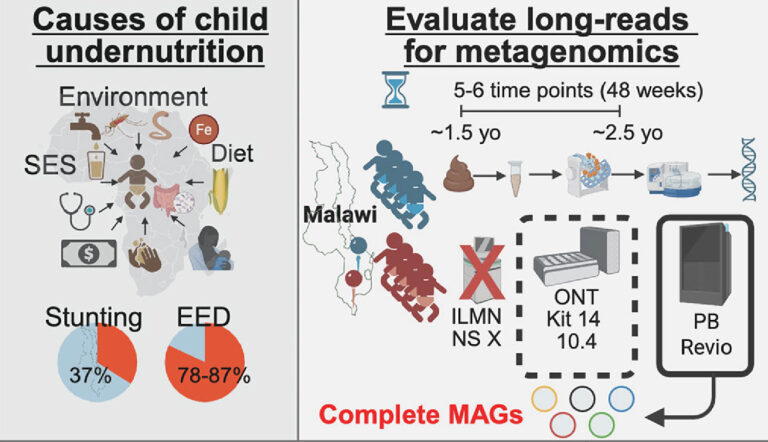Gut Bacteria and Child Growth - What a New Study Found
by Anna Sandhu | Sep 12, 2025
Reviewed by Dr. Arun, M.Pharm., PGDRA, Ph.D.

Scientists wanted to learn more about how the tiny living things in a child’s gut, the gut microbiome, might be linked to how well kids grow. They focused especially on children in places where under-nutrition (not getting enough good food + absorption problems) is common.
In this study, the researchers used a new kind of DNA technology called long-read metagenomics. Unlike older methods, this lets them read much larger stretches of microbial DNA directly from gut samples, without growing the organisms in a lab. That helps them build near‐complete genomes of the microbes. In other words, they could see “who is there” and “what genes they have.”
They studied children in Malawi. They collected stool (poop) samples from a small group of toddlers over time (about 11 months). With that data, they assembled almost 1,000 complete microbial genomes (many of them circular, meaning fully resolved) from those samples.
What did they find? One big pattern was that children whose gut microbial genomes remained more stable over time tended to grow better (as measured by standard growth scores like length-for-age). On the flip side, kids whose gut microbe genomes were more unstable, meaning the microbiome changed a lot over time, tended to have worse growth outcomes.
Another key point: the technology gave the researchers more detail than ever before. They could look at specific genes in the microbes and see associations with growth-related traits. That means it may not just be which microbes are there, but what they are capable of doing (based on their genes) that matters.
However, the study also makes it clear this is not proof that changing the gut microbiome will automatically make children grow better. It shows strong associations (links), not direct cause and effect. More research is needed.
In short: the gut microbiome appears to play a meaningful role in child growth, especially in under-nutrition settings. Using advanced DNA sequencing, scientists found that a more stable, well-structured gut microbial community is linked with healthier growth. These findings might one day help guide new nutritional or microbial-based tools to help children grow stronger.
More Information: Culture-independent meta-pangenomics enabled by long-read metagenomics reveals associations with pediatric undernutrition. DOI: 10.1016/j.cell.2025.08.020.
